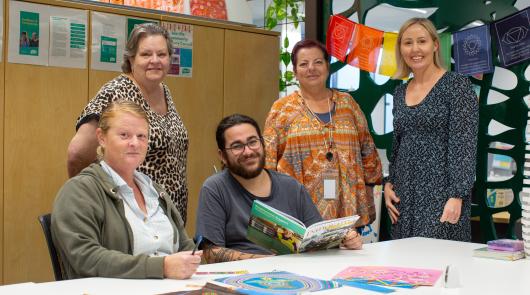
Learning new skills is an important part of growing as a person, and the right ones can greatly further your career. In addition to speeding up how fast you learn, mastering new skills will compliment your existing abilities, increase your productivity, and lead to feeling more fulfilled in life.
Upskilling can require a serious investment of time, effort and patience, depending on your current level of proficiency and what you want to learn, so you need to know upfront what the potential returns will be. Will it be relevant to your job? What will you gain from the learning process?
First, pinpoint your exact goal. It needs to be attainable and you should be prepared to work hard to achieve it. Identify your current skill level and brainstorm how you can do better. You might also want to define what it means to “master” a skill. If your goal is to become more proficient at baking, mastering a souffle is very different to mastering pancakes.
It’s important to know what learning methods work best for you. Do you prefer looking at graphics, reading textbooks, watching demonstrations on YouTube, listening to talks, or getting hands-on experience? Reflect on which learning experiences have been successful in the past, as which were least effective.
Figure out how much time and energy you can invest, write down a schedule, and stick to it! Aim to practice when you have the most energy and focus, and work in short bursts to stay on-task and motivated. Eliminate distractions by finding a quiet area to work.
Setting reasonable targets is essential for your morale. Don’t expect to nail a new skill the day you begin! Mastery can take months or longer, and self-improvement can feel overwhelming, so start small. Break down the skill you want to learn, into manageable goals, on a timeline. Accomplishing mini-goals can help you stay motivated, so stay positive by celebrating the small successes.
Don’t try to do everything on your own. Seek out others for guidance, feedback and support. This could be a teacher, a more experienced coworker, a loved one, or anyone else in your network.
Once you attain a skill, continue to practice it as much as possible to maintain your proficiency. Stay up to date on best practices, subscribe to specialty newsletters, and keep in touch with other people in your field.
Reflect on what you’re learning and what you still want to accomplish. Set yourself regular challenges, and don’t be afraid to learn through trial and error: it’s a time-honoured tradition!
Be proud of your progress, but remember: there’s always more you can learn.
By Grant J Everett
Talk to us today
For more information, contact us on 1300 779 270 or make an enquiry now.


